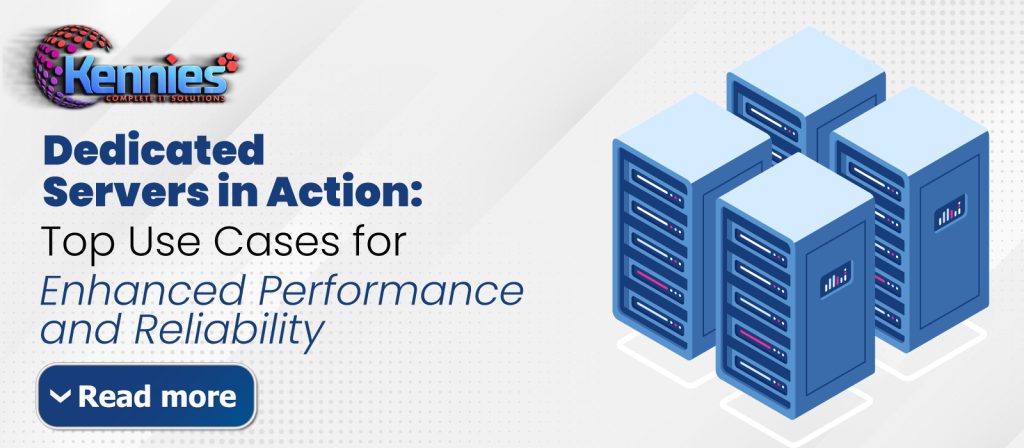
When it comes to deciding between bare metal servers and virtual servers, it depends on the specific application requirements. Bare metal servers have better performance, while virtual servers provide good scalability and cost-effectiveness. Here in this blog we are going to learn an explicit explanation and differences between these two servers. So, first, understand these two servers carefully and then decide which one is right for you.
What are Bare Metal Servers?
Bare metal servers offer a robust solution for individuals and businesses looking for unparalleled performance and reliability. It is a physical server dedicated completely to a single user. It enables direct access to the server’s hardware without any virtualization. Moreover, it gives the user entire control over each aspect of the infrastructure, including the choice of operating system, hardware configurations, and applications.
By skipping virtualization and hypervisor overhead, a bare metal server offers the superior performance that comes with all the processing power and memory being allocated to a single tenant. As a result, the isolation inherent in bare metal servers means that users avoid noisy neighbor concerns, enjoying enhanced security and stability.
What are Virtual Servers?
Virtual servers are referred to as software-defined virtual machines that run on physical servers within data centers. They utilize hypervisors to allocate and manage shared hardware resources from their host systems. These virtual hosting servers provide a virtualized environment for storage and computing tasks, designed to offer users scalability and flexibility. Virtual servers are highly adaptable, enabling swift scaling of resources to tailor varying workload demands. They are generally used in cloud services and hosting environments due to their cost efficiency and ease of management, catering to businesses and applications requiring dynamic resource allocation.
Distinguish between Bare Metal Servers and Virtual Servers
Regarding the terms of performance, bare metal servers offer exclusive access to all internal resources, like server CPU and RAM, without sharing. On the other hand, virtual servers provide a large pool of resources and share the hardware of the physical servers. This exceptional attribute makes bare metal servers ideal for managing crucial data, also highlighting a primary difference between the two. As a result, bare metal servers can supply enhanced data security that may not be as robust in virtual server environments.
Additionally, in terms of capacity, bare metal servers are not as easily scalable and can be costly to upgrade. Meanwhile, virtual servers can be scaled up by easily adding more server RAM or other hardware components, thereby increasing internal capacity with relative ease. Bare metal servers can handle large-scale, centralized data processing, but they lack the flexibility offered by virtual servers. Thus, virtual servers offer adaptable storage solutions that enable load balancing to tailor varying storage needs.
Key advantages and disadvantages of Bare Metal Servers and Virtual Servers
| Features | Bare Metal Servers | Virtual Servers |
| Advantages | ||
| Performance | High performance due to direct access to hardware | Efficient resource utilization |
| Customization | Full control over hardware and software configurations | Easy to create and configure multiple virtual machines |
| Security | Enhanced security with dedicated hardware | Isolation between virtual machines |
| Reliability | Predictable and consistent performance | Quick recovery with snapshots and backups |
| Disadvantages | ||
| Cost | Higher upfront cost for hardware | Performance overhead due to virtualization |
| Scalability | Scalability requires purchasing additional hardware | May face resource contention issues |
| Deployment Time | Longer setup and deployment times | Potentially more complex management and setup |
| Resource Utilization | Underutilization of resources if not properly managed | Dependent on the underlying physical server |
| Flexibility | Less flexible to adapt to changing workloads | Possible security vulnerabilities from the hypervisor |
Bare Metal Servers Vs. Virtual Servers: Consider Which is Best for You?
Considering the right server between Bare metal and virtual servers depends on factors like current IT and application needs, business planning, budget, risk tolerance, and anticipation of future IT needs. Your choice of server primarily depends on your business requirements. If your business needs uncompromising performance, full-proof security, and ultimate privacy, and you can afford to pay a higher price for it, a bare metal server will be the right option for you.
On the other hand, if your business wants to focus more on scalability, needs instant resource provisioning, and needs a smaller price tag, a virtual server is a much better option. There are some significant points you should consider to get more clarity while selecting the right server for your business needs.
Consider Bare Metal Servers When:
- Performance is pivotal, and there is a need for dedicated resources.
- Custom hardware configurations are required for specialized workloads.
- Foreseen workloads with consistent resource demands are anticipated.
Consider Virtual Servers When:
- Cost-effectiveness and resource efficiency are the main priorities.
- Scalability and flexibility are crucial to house fluctuating workloads.
- Instant provisioning and deployment of new instances are essential.
Conclusion
Indeed, both bare metal servers and virtual servers provide exceptional benefits and trade-offs, making them suitable for different use cases and scenarios. By carefully considering factors like performance, customization, scalability, and cost, organizations can make an informed decision that regulates their infrastructure requirements and business objectives. Whether opting for the raw power of bare metal servers or the flexibility of virtual servers, selecting the right hosting solution is crucial for optimizing performance, efficiency, and scalability in the modern digital landscape.
Frequently Asked Questions
-
What is the ideal for using bare metal servers instead of virtual servers?
Bare metal servers are ideal for use cases that require utmost performance, high levels of security, and full hardware access. Its resources are solely dedicated to you and not to multiple customers. Compared to the cloud, where there are numerous customers residing on the same physical server, a bare metal server serves only a single customer. Thus, bare metal servers provide several benefits, including performance, security and customization.
-
What types of servers are bare metal?
A bare metal server refers to a physical server dedicated completely to a single user. It enables direct access to the server’s hardware without any virtualization. Moreover, it gives the user complete control over each aspect of the infrastructure, including the choice of operating system, hardware configurations, and applications.
-
What is another name for a bare metal server?
When it comes to bare metal servers, you have found that it is a physical server dedicated entirely to one user. That is why bare metal servers are often known as dedicated servers.










